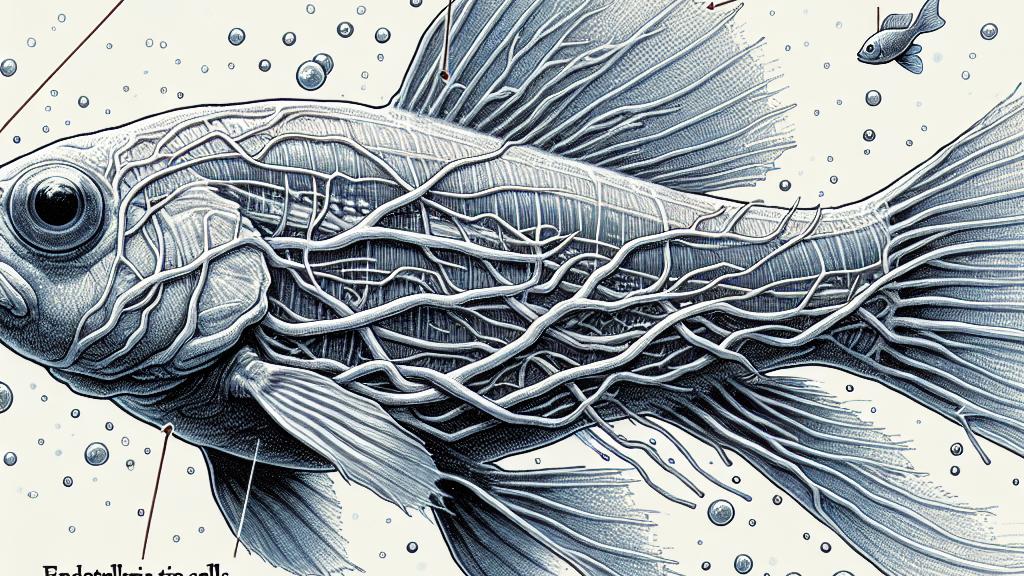How Water Helps Cells Build Blood Vessels
Overview
- Exciting research demonstrates that water flow is crucial in forming new blood vessels.
- Endothelial tip cells depend on both flowing water and actin for effective migration.
- These insights could pave the way for innovative cancer therapies and improve vascular treatments.

The Essential Role of Water in Angiogenesis
Have you ever paused to think about how something as simple as water can wield such incredible power in our bodies? A groundbreaking study emerging from Japan has shown that water flow is not just vital for hydration; it is a key player in the formation of blood vessels. Researchers studying zebrafish—a favorite organism for developmental biology due to its transparency—have discovered that when water flows through these small creatures, it supports the migration of endothelial tip cells, which are the pioneering architects of our vascular system. Picture these cells as dynamic explorers, fearlessly venturing out to create extensive networks of blood vessels! Without this invigorating current of water, these explorers struggle to reach their destinations, revealing how indispensable water is to the intricate machinery of blood vessel development.
Understanding Cell Migration Mechanics
Curious about how these cells accomplish their migration? Well, it's quite the spectacle! The process of cell migration resembles a well-choreographed dance, combining two essential components: actin polymerization and hydrostatic pressure from water flow. You can think of actin as the engine behind the movement—like the gears of a well-oiled machine—providing the necessary force for the cells to extend and push forward. On the other hand, water acts like a supportive wave, enhancing this movement, much like a surfer riding an ocean swell. Intriguingly, experiments have shown that when aquaporins—the proteins that allow water to flow in and out of cells—are disabled, the migration of endothelial cells falters dramatically. This highlights the profound interdependence between these two mechanisms. Just as a maestro coordinates an orchestra, these forces work in flawless harmony to empower the development of robust blood vessels.
Transformative Implications for Medical Research
The ripple effects of these findings could revolutionize medical science! Consider this: tumors are notorious for manipulating the body's natural blood vessel formation processes for their own gain, securing resources to fuel their insatiable growth. By understanding the intricate relationship between water flow and actin in endothelial cell migration, scientists can explore new treatment strategies aimed at cutting off a tumor's access to its lifeline. Imagine therapies designed to block the water supply to these rogue cells, effectively stifling their growth and proliferation. This breakthrough could change the trajectory of cancer treatments and provide renewed hope for patients battling this disease. In conclusion, recognizing how interconnected these biological processes are underscores the beauty of our body’s systems. Who would have thought something as ordinary as water could hold the key to extraordinary advancements in healthcare?

Loading...